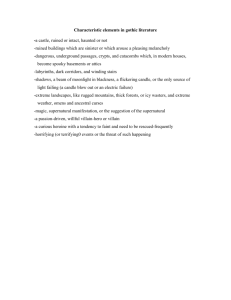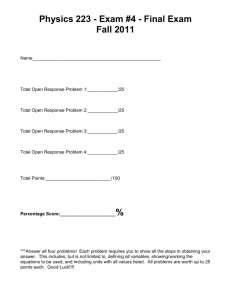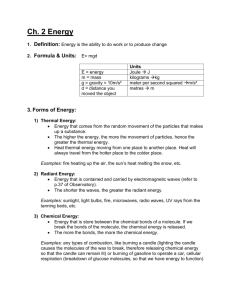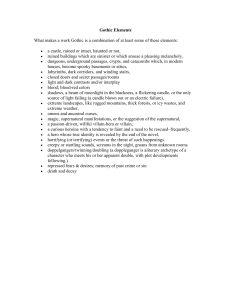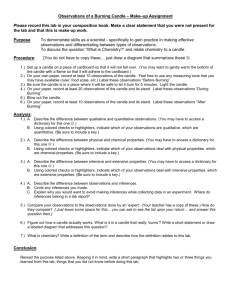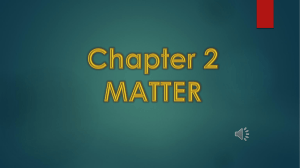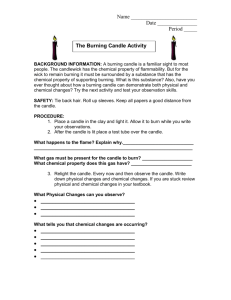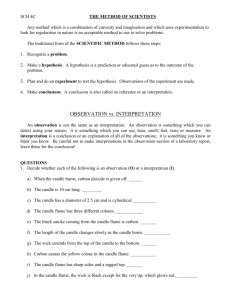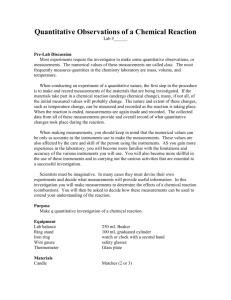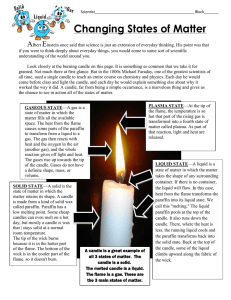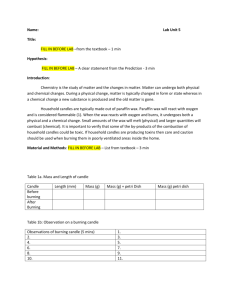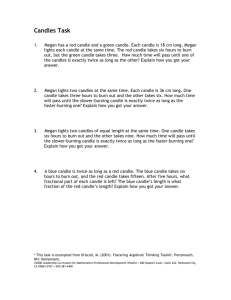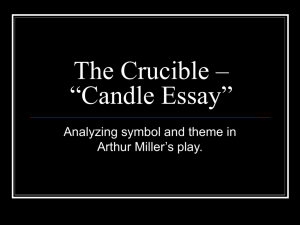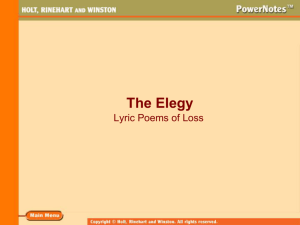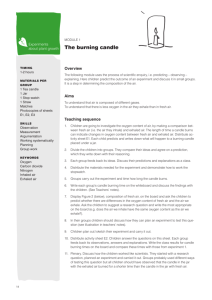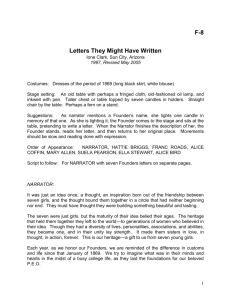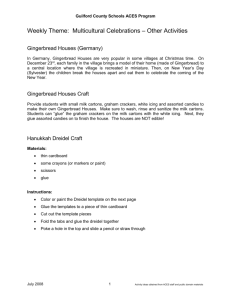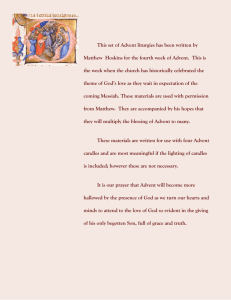“Elegy for Jane”
advertisement
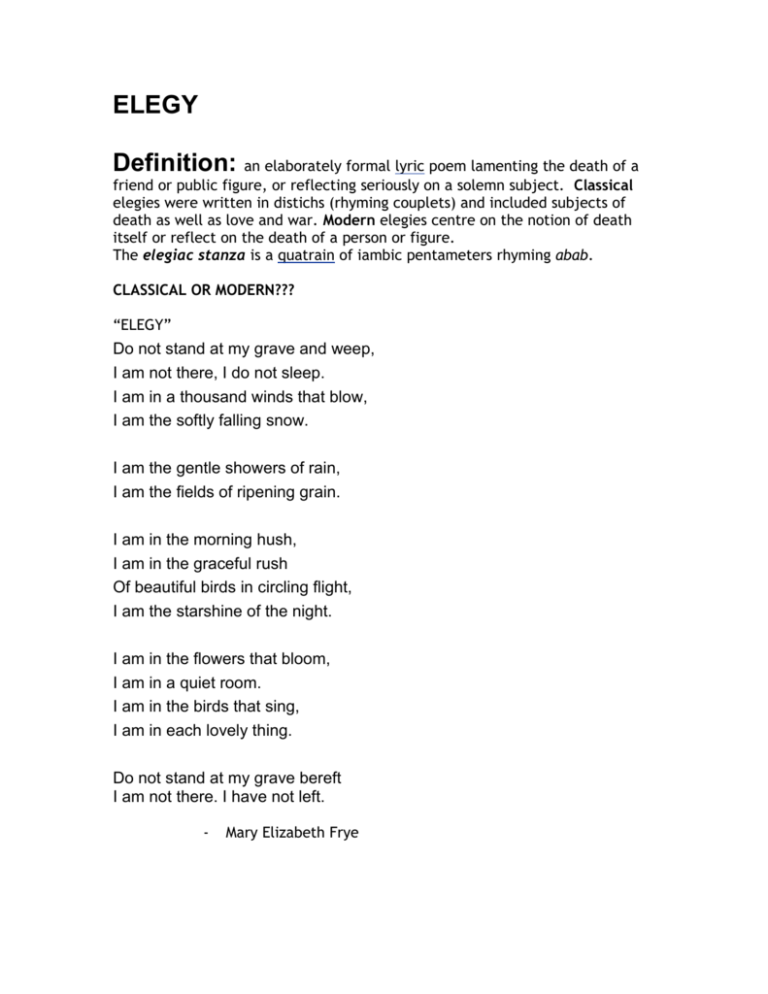
ELEGY Definition: an elaborately formal lyric poem lamenting the death of a friend or public figure, or reflecting seriously on a solemn subject. Classical elegies were written in distichs (rhyming couplets) and included subjects of death as well as love and war. Modern elegies centre on the notion of death itself or reflect on the death of a person or figure. The elegiac stanza is a quatrain of iambic pentameters rhyming abab. CLASSICAL OR MODERN??? “ELEGY” Do not stand at my grave and weep, I am not there, I do not sleep. I am in a thousand winds that blow, I am the softly falling snow. I am the gentle showers of rain, I am the fields of ripening grain. I am in the morning hush, I am in the graceful rush Of beautiful birds in circling flight, I am the starshine of the night. I am in the flowers that bloom, I am in a quiet room. I am in the birds that sing, I am in each lovely thing. Do not stand at my grave bereft I am not there. I have not left. - Mary Elizabeth Frye “Elegy for Jane” by Theodore Roethke I remember the neckcurls, limp and damp as tendrils; And her quick look, a sidelong pickerel smile; And how, once startled into talk, the light syllables leaped for her, And she balanced in the delight of her thought, A wren, happy, tail into the wind, Her song trembling the twigs and small branches. The shade sang with her; The leaves, their whispers turned to kissing, And the mould sang in the bleached valleys under the rose. Oh, when she was sad, she cast herself down into such a pure depth, Even a father could not find her: Scraping her cheek against straw, Stirring the clearest water. My sparrow, you are not here, Waiting like a fern, making a spiney shadow. The sides of wet stones cannot console me, Nor the moss, wound with the last light. If only I could nudge you from this sleep, My maimed darling, my skittery pigeon. Over this damp grave I speak the words of my love: I, with no rights in this matter, Neither father nor lover. 1. 2. 3. 4. Underline the animal/bird imagery within the poem. List 3 of her traits as seen by the speaker. Include a quotation as support. Highlight and label as many figurative devices as you can find. What is the speaker’s tone? Support. “Candle in the Wind” (Princess Diana tribute by Elton John) based on “Candle in the Wind” – a song about Marilyn Monroe sung by Elton John Goodbye England's rose May you ever grow in our hearts You were the grace that placed itself Where lives were torn apart You called out to our country And you whispered to those in pain Now you belong to heaven And the stars spell out your name And it seems to me you lived your life Like a candle in the wind Never fading with the sunset When the rain set in And your footsteps will always fall you Along England's greenest hills Your candle's burned out long before Your legend never will Loveliness we've lost These empty days without your smile This torch we'll always carry For our nation's golden child And even though we try The truth brings us to tears All our words cannot express The joy you brought us through the years And it seems to me you lived your life Like a candle in the wind Never fading with the sunset When the rain set in And your footsteps will always fall you Along England's greenest hills Your candle's burned out long before Your legend never will Goodbye England's rose May you ever grow in our hearts You were the grace that placed itself Where lives were torn apart Goodbye England's rose From a country lost without your soul Who'll miss the wings of your compassion More than you'll ever know And it seems to me you lived your life Like a candle in the wind Never fading with the sunset When the rain set in And you footsteps will always fall you Along England's greenest hills Your candle's burned out long before Your legend never will
